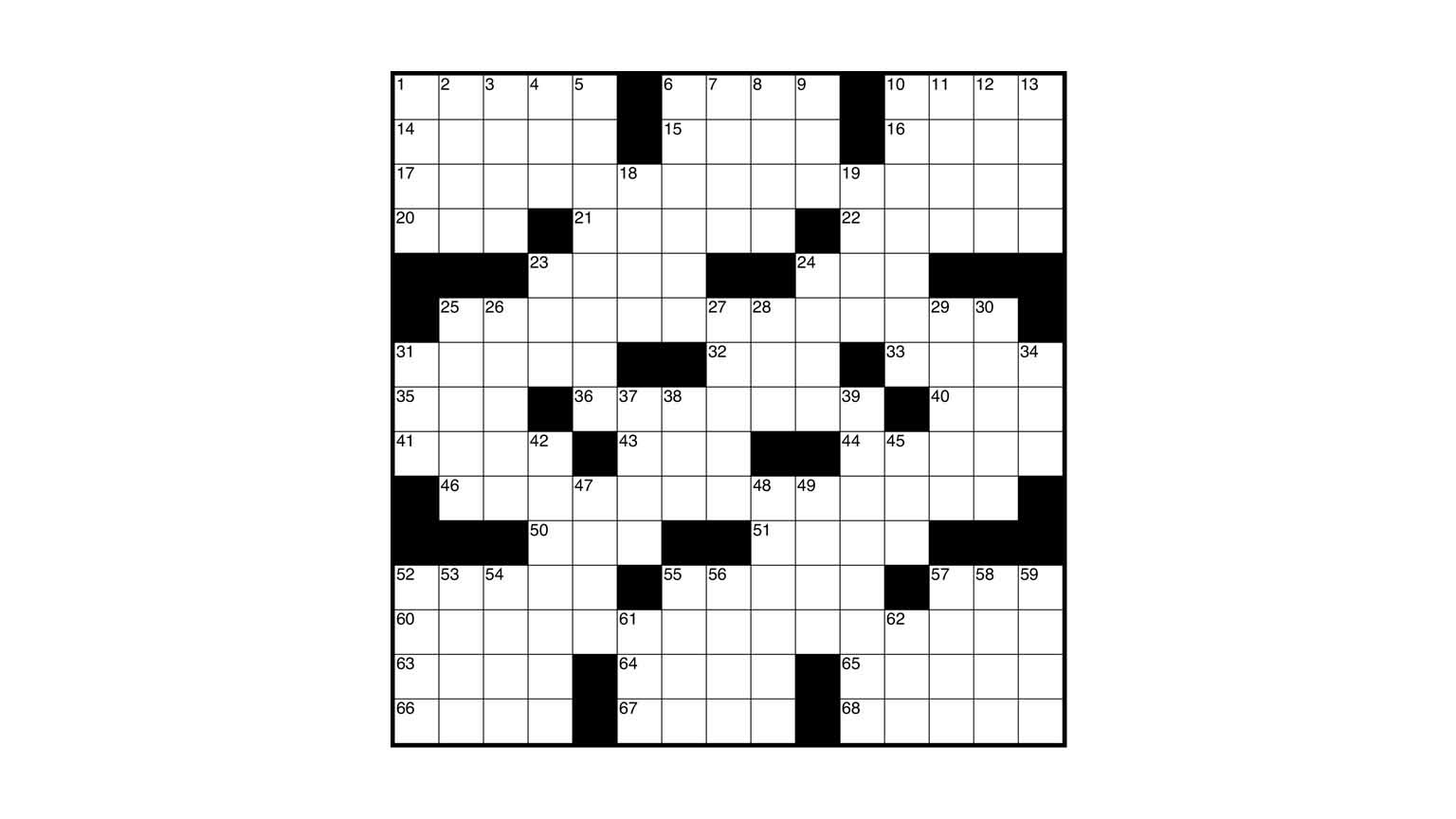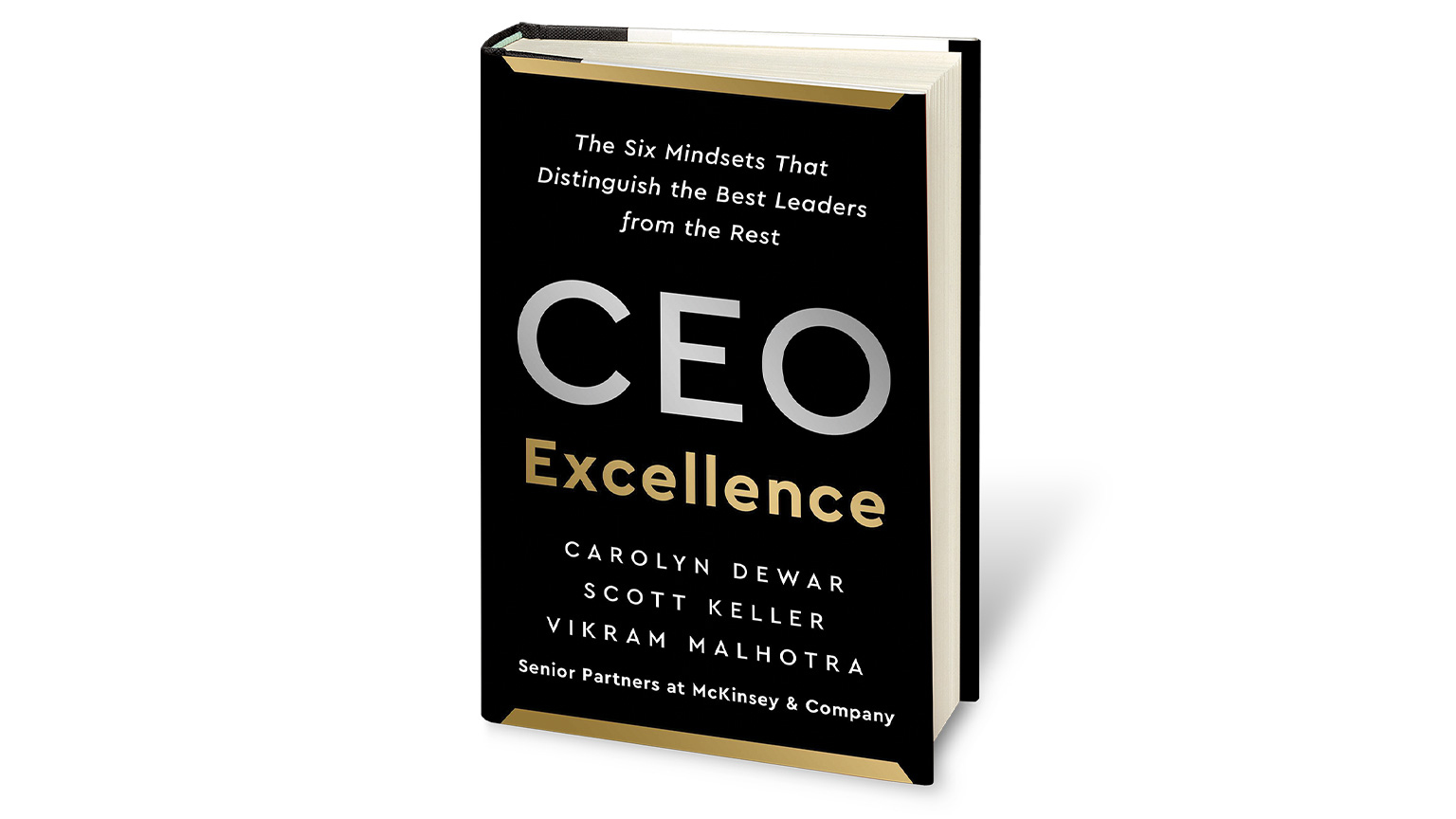
|
|
|
|
THIS MONTH'S PAGE-TURNERS ON BUSINESS AND BEYOND
|
|
|
|
|
|
As tech innovators continue to push the boundaries with virtual reality, scientists are hard at work on editing the natural one. But it’s not sci-fi—it’s synthetic biology, a field of science that combines design, computers, and biology to allow for the engineering of living cells. In this edition of Readers & Leaders—McKinsey’s monthly newsletter on the books that business leaders are reading—catch a discussion with Amy Webb on the future of synthetic biology; learn about the best leadership insights from the world’s top CEOs; see this month’s bestselling business books, prepared exclusively for McKinsey by NPD BookScan; and more. Itching for more good reads? Check out McKinsey on Books for the latest. And to get Readers & Leaders in your inbox monthly, click here to subscribe. |
|
|
|
|
|
|
|
|
Biological cell editing—or synthetic biology—is poised to affect nearly every facet of life, from healthcare to restaurant dining to life expectancy, which raises some interesting questions: How could synthetic biology be used to control how we create our children? Where will we source our food in the future? And what would succession planning look like in a world where people lived much longer than they do today? In a recent edition of Author Talks, leading futurist Amy Webb discusses these and other science-based hypotheticals from her new book, The Genesis Machine: Our Quest to Rewrite Life in the Age of Synthetic Biology (Hachette Book Group, February 2022).
“The biggest and the most durable inventions of the 21st century are going to be at the nexus of biology and technology. For that reason, I cannot think of an industry that synthetic biology will not have some impact on over the next decade. Pharmaceuticals, industrial materials, auto manufacturers, banks, everybody in some way will play a role in what’s coming.” Watch the full interview
|
|
|
|
|
|
|
|
|
|
|
|
|
|
|
Google’s Neil Hoyne teaches us how to build consumer trust: “Consumers who sign up for a gym membership are really only going to go six times in that entire year. Simply buying something isn’t enough, and companies were falling into the same trap. They were saying, ‘With software, this will unlock all of our data.’” Watch the full interview.
Ruchika Tulshyan explains how workplace inclusion efforts can backfire: “Some of the advice that’s given to women, such as ‘negotiate harder’ or ‘be more confident’ or ‘fake it till you make it,’ has actually been found to be detrimental for women’s careers. It continues putting the onus on women to change, when actually a lot of the challenges we face are systemic and need to be addressed by the organizations.” Watch the full interview.
Whitney Johnson shares strategies for individual and team development: “People are really evaluating their lives, and they’re asking themselves, ‘Do I want more?’ I don’t so much think it’s the Great Resignation. Yes, people are resigning, but what I really think is happening is the Great Aspiration. People are aspiring for more—they’re not resigning from. They’re aspiring for more because they want to grow.” Watch the full interview.
|
|
|
|
|
|
|
|
|
Daylight saving time is right around the corner. Find a window seat and take advantage of the extra hour of sunlight with this month’s top business bestsellers in eight categories, prepared exclusively for McKinsey by NPD BookScan, and explore the full lists on McKinsey on Books.
|
|
|
|
|
|
|
|
|
|
|
|
|
|
|
|
|
|
|
|
|
|
|
|
|
|
|
|
|
|
|
|
|
|
|
|
|
|
|
1. There There, by Tommy Orange, a member of the Cheyenne and Arapaho tribes of Oklahoma, weaves together the stories of 12 Native Americans as they come together for the Big Oakland Powwow. The characters (some of whom are related) humanize the complex and painful history of urban American Indians, who, as the author writes, “know the sound of the freeway better than we do rivers.”
2. A Burning, by Megha Majumdar, is a cautionary tale of what can happen when people make decisions based on ambition. It centers around a terrorist attack in contemporary India and the intertwined fates of three characters—a Muslim girl who makes a pointed comment about the attack on Facebook, an opportunistic teacher, and a charismatic outcast who dreams of fame.
3. Unbroken: A World War II Story of Survival, Resilience, and Redemption, by Laura Hillenbrand, is one of the best examples of a life story that seems too unbelievable to be real. It focuses on Louis Zamperini, a World War II veteran who was an Olympic track star, an army officer, and a survivor of three prisoner-of-war camps in Japan after being stranded in the Pacific Ocean for 47 days.
4. Brain on Fire: My Month of Madness, by Susannah Cahalan, is an insightful portrayal of an out-of-body experience in which the author suffers from a rare, rapid-onset disease that transforms her personality and causes her to suffer paranoid delusions, until she is eventually able to uncover a diagnosis and start treatment.
5. Why We Sleep: Unlocking the Power of Sleep and Dreams, by Matthew Walker, is a fascinating wake-up call (so to speak) on sleep deprivation. The stats are compelling: for example, in one study, the effects of getting even six hours of sleep a night for ten days were the same as going without sleep for 24 hours straight.
6. Sapiens: A Brief History of Humankind, by Yuval Noah Harari, is an excellent survey course on the progress of human evolution. Complex topics, including key inflection points of humanity (for example, agricultural revolution, scientific revolution), are covered in an accessible way with insightful commentary on why humans have evolved the way they have.
This reading list was compiled by Anna Pione, a partner in New York who leads McKinsey’s consumer health and wellness service line, including the firm’s global research on the Future of Wellness. This segment was adapted from the Shortlist, McKinsey’s weekly newsletter on timely topics, edited by Barbara Tierney.
|
|
|
|
|
|
|
|
|
 |
|
Download McKinsey’s signature reports and special collections on the management issues that matter, from leading through the COVID-19 crisis to managing risk and digitizing operations. |
Get smart  |
|
|
|
|
|
|
 |
|
37-Down: Car company that had the slogan “Born from jets.” Can you solve it? |
Play now  |
|
|
|
|
|
|
 |
|
Coming March 15, McKinsey’s authoritative new #CEOExcellenceBook outlines the six mindsets that distinguish the best leaders from the rest, based on rigorous research across more than 20 years’ worth of data on 7,800 CEOs from 3,500 public companies across 70 countries and 24 industries. |
Preorder your copy now  |
|
|
|
|
|
|
If you’d like to propose a book or author for #AuthorTalks, please email us at Author_Talks@Mckinsey.com. Due to the high volume of requests, we will respond only to those being considered.
|
|
|
—Edited by Molly Liebergall, an editor in McKinsey's New York office
|
|
|
|
|
|
|
|
|
|
|
|
Did you enjoy this newsletter? Forward it to colleagues and friends so they can subscribe too. |
|
|
Was this issue forwarded to you? Sign up for it and sample our 40+ other free email subscriptions here. |
|
|
This email contains information about McKinsey's research, insights, services, or events. By opening our emails or clicking on links, you agree to our use of cookies and web tracking technology. For more information on how we use and protect your information, please review our privacy policy. |
|
You received this email because you subscribed to the Readers & Leaders newsletter. |
|
|
Copyright © 2022 | McKinsey & Company, 3 World Trade Center, 175 Greenwich Street, New York, NY 10007 |
|
|











